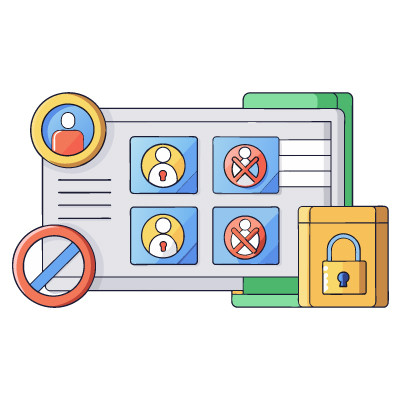While hiring anyone to work in your business offers an assortment of challenges to overcome, it’s especially complicated when that hire’s role involves managing your IT. Technology is a complex subject, after all, and your expertise more than likely lies elsewhere in your organization’s needs. This knowledge gap could lead to the wrong fit being brought on… an expensive endeavor in more ways than one.
Aspire Technical Blog
Implementing cool new technology solutions is fun and all… until you realize that there’s a lot of work involved in it. Your employees, for example, might even resist the change that it brings. How is your business going to address these challenges in a way that is productive for not just your employees, but for your entire organization? That’s what we want to discuss today.
Cybersecurity solutions are all well and fine, but your team also plays a significant role in keeping your business safe. You need to acknowledge they are a potential threat and take steps to prepare them for the bevy of threats they’ll face. Today, we want to discuss why your employees are a cybersecurity threat and what you can do to mitigate it.
If you’re a regular reader of this blog, you’ve probably come across articles on blockchain before. This week, we're shifting gears to explore a new topic: should cryptocurrency, which is enabled by blockchain technology, be subject to taxation by state, federal, and international authorities? Let’s dive into what blockchain is, how it supports cryptocurrency, and the ongoing debate about potential taxation.
Let me ask you this: would you trust every one of your team members with a key to your house? Of course not, right? After all, what if someone lost their copy or had it stolen from them?
So, if you wouldn’t trust your entire team with access to your home, why on earth would you trust them with carte blanche access to your entire business and all of its data?
That’s just it… you wouldn’t.
Relationships in business are just like relationships elsewhere in life: messy and sometimes chaotic, but generally good to foster. This goes for relationships with customers, vendors, and even your employees. Today, we want to look at how you can build better and stronger relationships for your business.
Businesses face numerous challenges, many of which arise internally. Whether your business is dealing with cybersecurity threats, unhappy customers, or unreliable suppliers, leaders must navigate every threat. Among these, internal issues can often be the most disruptive. In this blog, we'll focus on two critical employee-related challenges that can significantly hinder business operations.
Of all your business’ potential cybersecurity vulnerabilities, one can more easily bring your organization to its knees than any other… but if this vulnerability is addressed correctly, you could instead see considerable benefits.
Of course, the vulnerability I’m referring to is your team itself. Human error, in its many forms, can easily leave you vulnerable if you aren’t careful about preparing yourself and the rest of your staff to act with cybersecurity in mind.
Cyberattacks will not let up anytime soon, so businesses need to be prepared with the knowledge and expertise to combat them. Unfortunately, finding the right folks with the right expertise is hard. According to a report from Kaspersky titled “The Portrait of Modern Information Security Professional,” the world is short about 4 million security professionals, and even the existing professionals make grave errors in their first couple of years. Let’s take a look at some of these insights and see what we can learn from them.
For reasons that we’re all too familiar with, the workplace changed drastically a few years ago when office workers everywhere suddenly found themselves thrust into remote work. As it turns out, a lot of them have liked being able to work remotely. That makes the efforts of a few outspoken companies to roll back remote work somewhat worrisome… but experts aren’t convinced these outliers represent the reality of the situation.
I was thinking about a funny tech support issue I ran into many years ago, and thought it would be fun to share it with everyone. All names have been changed to protect the innocent. If you’ve ever had to spend hours chasing down the root of a problem, only to find that it was the dumbest thing possible, you’ll probably relate to this!
For the past few weeks, we have been looking at the idea of procrastination and how it manifests in individuals to directly impact your business. Today, we want to take a closer look at how you can put a halt to procrastination in the short term, as well as how you can further these tactics to create real change over time. We’ll begin with the short-term solutions.
Procrastination is one of the banes of any productive employee, and as such, it’s worth examining why procrastination surfaces and what you can do about it. In this series of blogs, we’re going to take a deeper dive into procrastination, with this week focusing on the concept of procrastination and what might cause it.



















